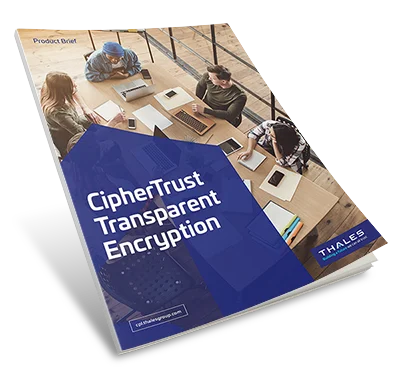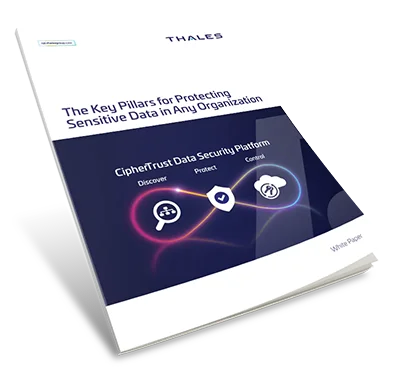Monetary Authority of Singapore Guidance
To safeguard sensitive customer data and comply with the Monetary Authority of Singapore’s Technology Risk Management Guidelines, organizations need to apply consistent, robust and granular controls.
The CipherTrust Data Security Platform from Thales helps customers address these guidelines throughout their organization, in part through:
- Strong access management and authentication
- Comprehensive data encryption capabilities
- Sensitive data discovery and classification
- Centralized policy and key management
- Access monitoring and intelligence
- Flexible integration options
- Regulation
- Compliance
Regulation Overview
The Monetary Authority of Singapore (MAS) published Technology Risk Management (TRM) Guidelines to help financial firms establish sound technology risk management, strengthen system security, and safeguard sensitive data and transactions.
The TRM contains statements of industry best practices that financial institutions conducting business in Singapore are expected to adopt. The MAS makes clear that, while the TRM requirements are not legally binding, they will be a benchmark the MAS uses in assessing the risk of financial institutions.
Guideline Descriptions
- 8.4.4 The FI should encrypt backup tapes and disks, including USB disks, containing sensitive or confidential information before they are transported offsite for storage.
- 9.1.6 Confidential information stored on IT systems, servers and databases should be encrypted and protected through strong access controls, bearing in mind the principle of “least privilege”.
- 11.0.1.c Access control principle – The FI should only grant access rights and system privileges based on job responsibility and the necessity to have them to fulfill one's duties. The FI should check that no person by virtue of rank or position should have any intrinsic right to access confidential data, applications, system resources or facilities.
- 11.1.1 The FI should only grant user access to IT systems and networks on a need-to-use basis and within the period when the access is required. The FI should ensure that the resource owner duly authorises and approves all requests to access IT resources.
- 11.2 Privileged Access Management.
- 11.2.3.d. Grant privileged access on a “need-to-have” basis.
- 11.2.3.e. Maintain audit logging of system activities performed by privileged users.
- 11.2.3.f. Disallow privileged users from accessing systems logs in which their activities are being captured.
- 13 payment card security (automated teller machines, credit and debit cards).
Vormetric Data Security Manager
The Vormetric Data Security Manager from Thales offers centralized management of keys and policies for the entire suite of products available within the Vormetric Data Security Platform. The product is available as a physical or virtual appliance.
Vormetric Transparent Encryption
Vormetric Transparent Encryption from Thales leverages an agent that runs in the file system to provide high-performance encryption and least-privileged access controls for files, directories, and volumes. Vormetric Transparent Encryption supports both structured databases and unstructured files.
Vormetric Application Encryption
Vormetric Application Encryption from Thales employs standards-based APIs to simplify the process of doing column-level encryption in applications.
Vormetric Key Management
With Vormetric Key Management from Thales, administrators can centrally manage keys for Vormetric products, Oracle TDE, Microsoft TDE, and more. In addition, the product securely stores certificates and offers support for the Key Management Interoperability Protocol (KMIP).
Vormetric Security Intelligence
Vormetric Security Intelligence can deliver granular file access logs to popular security information and event management (SIEM) systems and be used to support audits.
Other key data protection and security regulations
GDPR

Regulation
Active Now
Perhaps the most comprehensive data privacy standard to date, GDPR affects any organisation that processes the personal data of EU citizens - regardless of where the organisation is headquartered.
PCI DSS

Mandate
Active Now
Any organisation that plays a role in processing credit and debit card payments must comply with the strict PCI DSS compliance requirements for the processing, storage and transmission of account data.
Data Breach Notification Laws

Regulation
Active Now
Data breach notification requirements following loss of personal information have been enacted by nations around the globe. They vary by jurisdiction but almost universally include a “safe harbour” clause.












